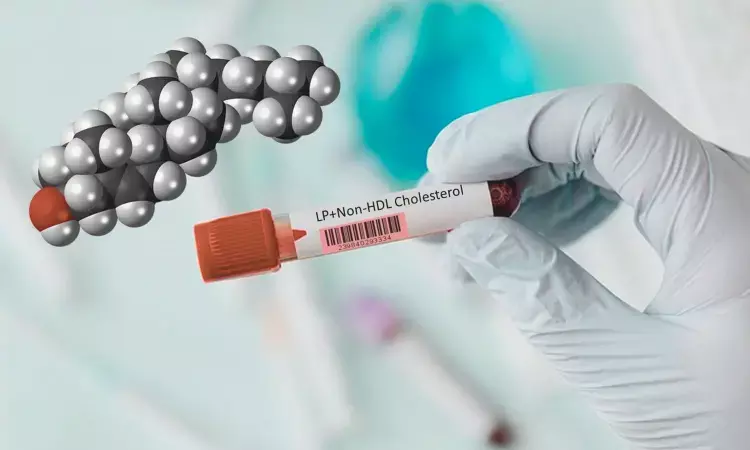- Home
- Medical news & Guidelines
- Anesthesiology
- Cardiology and CTVS
- Critical Care
- Dentistry
- Dermatology
- Diabetes and Endocrinology
- ENT
- Gastroenterology
- Medicine
- Nephrology
- Neurology
- Obstretics-Gynaecology
- Oncology
- Ophthalmology
- Orthopaedics
- Pediatrics-Neonatology
- Psychiatry
- Pulmonology
- Radiology
- Surgery
- Urology
- Laboratory Medicine
- Diet
- Nursing
- Paramedical
- Physiotherapy
- Health news
- Fact Check
- Bone Health Fact Check
- Brain Health Fact Check
- Cancer Related Fact Check
- Child Care Fact Check
- Dental and oral health fact check
- Diabetes and metabolic health fact check
- Diet and Nutrition Fact Check
- Eye and ENT Care Fact Check
- Fitness fact check
- Gut health fact check
- Heart health fact check
- Kidney health fact check
- Medical education fact check
- Men's health fact check
- Respiratory fact check
- Skin and hair care fact check
- Vaccine and Immunization fact check
- Women's health fact check
- AYUSH
- State News
- Andaman and Nicobar Islands
- Andhra Pradesh
- Arunachal Pradesh
- Assam
- Bihar
- Chandigarh
- Chattisgarh
- Dadra and Nagar Haveli
- Daman and Diu
- Delhi
- Goa
- Gujarat
- Haryana
- Himachal Pradesh
- Jammu & Kashmir
- Jharkhand
- Karnataka
- Kerala
- Ladakh
- Lakshadweep
- Madhya Pradesh
- Maharashtra
- Manipur
- Meghalaya
- Mizoram
- Nagaland
- Odisha
- Puducherry
- Punjab
- Rajasthan
- Sikkim
- Tamil Nadu
- Telangana
- Tripura
- Uttar Pradesh
- Uttrakhand
- West Bengal
- Medical Education
- Industry
Remnant Cholesterol Outperforms LDL-C in Predicting Thrombosis Risk in APS Patients: Study Finds

China: New research has highlighted that elevated remnant cholesterol (RC) levels are a significant predictor of recurrent thrombotic events in patients with antiphospholipid syndrome (APS), independent of traditional lipid measures like low-density lipoprotein (LDL) cholesterol.
The study, published in BMC Medicine, found that RC levels above 0.60 mmol/L were associated with a substantially increased risk of all-cause thrombosis (HR 5.05), venous thrombosis (HR 6.34), arterial thrombosis (HR 3.79), and microvascular disease (HR 4.36). The findings suggest that RC could be a more reliable marker for thrombotic risk in APS patients and a potential target for therapeutic intervention.
The researchers note that antiphospholipid syndrome is closely associated with thrombotic events, especially cardiovascular disease (CVD). While the role of remnant cholesterol in predicting CVD risk is well-established, its specific relationship with thrombotic risk in APS patients has not been fully explored. Bin Cai, Key Laboratory of Rheumatology and Clinical Immunology, Ministry of Education, Beijing, China, and colleagues seek to evaluate the association between elevated RC levels and recurrent thrombotic events in individuals with APS, aiming to better understand its potential as a predictive marker in this high-risk population.
For this purpose, the researchers conducted a prospective analysis using a cohort of APS patients who met the 2006 Sydney revised classification criteria. They assessed thrombotic risks associated with varying remnant cholesterol (RC) levels through Kaplan-Meier survival analysis and Cox proportional hazards regression models. Additionally, Mendelian randomization (MR) was employed to investigate the causal relationship between RC and different types of thrombotic events.
The study led to the following findings:
- 325 APS patients were enrolled in the study, with a median follow-up of 35 months.
- 51 patients experienced thrombotic events, including 24 venous, 19 arterial, and 16 microvascular incidents.
- Patients with RC levels above 0.60 mmol/L had significantly higher risks for all-cause thrombosis, venous thrombosis, arterial thrombosis, and microvascular disease, with hazard ratios of 5.05, 6.34, 3.79, and 4.36, respectively.
- Elevated RC was found to remain a significant thrombotic risk factor even in patients with normal conventional lipid profiles.
- Mendelian randomization analysis showed a significant causal association between RC and arterial thrombosis, but not venous thrombosis.
The findings showed that elevated remnant cholesterol is significantly associated with an increased risk of thrombotic events in patients with antiphospholipid syndrome, independent of traditional lipid measures such as LDL-C, total cholesterol, triglycerides, and non-HDL-C.
"This longitudinal study emphasizes the potential of remnant cholesterol (RC) as a valuable marker for thrombotic risk and underscores its importance in clinical monitoring," the authors wrote, adding, "Given its association with arterial, venous, and microvascular thrombosis, RC could serve as a crucial target for therapeutic intervention, providing a new approach to improving the prognosis of APS patients."
Reference:
Cai, B., Zhou, Y., Yang, X. et al. Remnant cholesterol predicts risk of recurrent thrombosis beyond LDL-cholesterol in patients with antiphospholipid syndrome. BMC Med 23, 233 (2025). https://doi.org/10.1186/s12916-025-04063-5
Dr Prem Aggarwal, (MD Medicine, DNB Medicine, DNB Cardiology) is a Cardiologist by profession and also the Co-founder and Chairman of Medical Dialogues. He focuses on news and perspectives about cardiology, and medicine related developments at Medical Dialogues. He can be reached out at drprem@medicaldialogues.in


